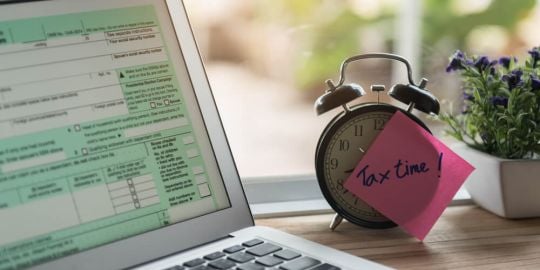I currently own a flat bought last year and unaware until now have to pay a tax. Is it an annual fee . Is it better to have the agent who sold the property therefore knows the details and fee due or can I do it myself and where do I send the fees if I am able to do it myself thanks?
Property tax
We pay to the urbanization a service charge fee, a local tax to the city and there is this rather weird imputed income tax a tax on what might have happened if you had rented your holiday home rather than use it for yourself. Contact John [email protected] he will do the tax forms for inputed income tax for you. As for local tax you need some help from a local probably
thankyou
Wherever you have bought your property, IBI council tax must be paid in Spain. This is a local tax that is collected by your town hall to pay for local services. It is collected annually and failure to pay can lead to fines and interest owed.
It's the council tax equivalent in Spain. IBI or Impuesto Sobre Bienes Inmuebles, is paid directly to the town hall or the SUMA offices. Although it is collected annually wherever you might live, the IBI council tax is due at different times of the year in Spain according to your area.
The tax is calculated according to the rateable value of your property or the valor catastral.The valor catastral is determined according to the size, condition, location, title, lease details, cost of improvements and construction cost of the property. A report is compiled and a valuer assesses what the rateable value should be.
The valor catastral is then recorded at the Catastral Registry which is a central record different to that of the Land Registry. This Registry is usually based at the town hall where the property is situated. You can find out how much the catastral value is by looking at your IBI bill or receipt if you do online banking.
The tax rates charged by the town hall also make a difference to how much IBI council tax you must pay in Spain. The rates vary a great deal and can be between 0.4% and 1.17%. A factor to take into consideration when you are buying a property. Occasionally there is a review of the valor catastral in your local area and, in theory, this should happen every ten years.
Following this review you might find that your rateable value increases and you will be charged more for your council tax equivalent in Spain. This may be the case if, for example, you have completed a structural change to your property such as adding a swimming pool or building an extension. In some cases you can even be charged back tax if you have made home improvements and not informed the authorities correctly.
It is important that you keep up payments of IBI council tax when you buy a property in Spain. If you miss a year then this might not be chased up immediately but a record will be held against your property that will come to light when you want to sell or bequeath it.
In most parts of Alicante it's SUMA who are the agency appointed to collect IBI. They are also responsible for the collection of road tax and have their own website on which you can pay your bills. The process is quite simple provided you pay within the specified voluntary period and have the bill to hand.
On the SUMA bill you will find a reference number and your NIE tax number. These can be used to pay online by card. The SUMA website is www.suma.es. There is an English version on the website and it is relatively easy to navigate. You can also pay your IBI council tax in Spain directly at a SUMA office or by telephone using a card.
Most people find that although IBI might be the equivalent of council tax in Spain, it is significantly cheaper than it would be in their home country. Some local towns have even taken the step recently of reducing this tax.
As with most charges in Spain, it is important to keep on top of the IBI and make sure that you do not let any debts build. The Spanish authorities may not contact you immediately but it will be on record and could cause problems for you in the future.
Epss
I suspect you may be referring to the imputed tax, commonly referred to as second home or holiday home tax.
If so, as a non-resident it is payable before 31st December for the `previous year. It is applicable to a property which is not one`s principle residence which not legally let, (if it were let then you would be paying income tax on the rental income, for the periods it was let on the rental income, and imputed tax for the rest of the year when not let).
The form is a 210 and can be completed on line here, downloaded and paid at a bank or with the right authorisation on line
http://www.agenciatributaria.es/static_ … _en_gb.pdf
Hope this helps. Juan
thankyou
Is it fair that only non residents pay this tax?
Residents in Spain have to pay imputed tax on all properties, apart from their main residence in Spain, which they own in Spain or anywhere worldwide.
For example: tax residents in Spain, who own a garage space which is separate from their main residence, another apartment or house, a house in UK on which they do not have any rental income, etc. must declare that additional property when making their annual tax declaration and pay imputed tax at the same rate as a non-resident with a holiday home on Spain.
OK got that John.
But if they are UK tax resident surely the situation should be reversed, they should pay imputed tax or whatever HMRC decides on all properties, apart from their main residence to HMRC in the UK, which they own in the UK or anywhere worldwide.
Sounds to me like HMRC are being diddled here and the Spanish tax authorities are on a nice earner.
Is the Spain setup the same throughout the EU? but only excludes the UK?.
Is it fair that only non residents pay this tax?
I thought I made it clear that residents, just like non-residents, pay it too on any property worldwide (including in Spain) which they own in addition to their principle home.








